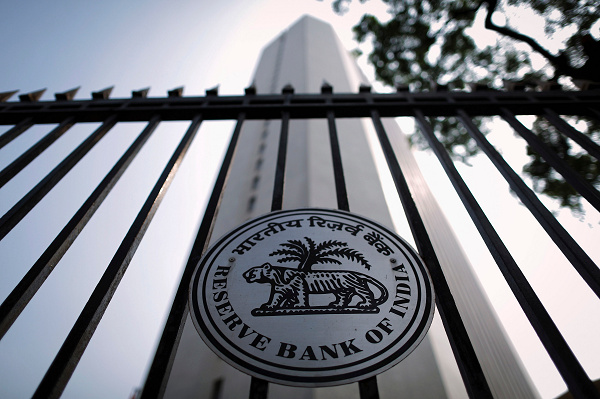
by Editor | May 25, 2021 | Banking, Economy, Markets, News
 By Porisma P. Gogoi,
By Porisma P. Gogoi,
Mumbai : The Indian equity market, which will resume trade on Monday after a four-day-long break, will track domestic events like the central bank’s first bi-monthly monetary policy review for the 2018-19 financial year, along with the release of macro-economic and automobile sales data, for direction in the upcoming week.
Along with domestic factors, global market sentiment, as well as crude oil prices and the course of foreign and domestic funds are also expected to influence investors’ risk-taking appetite during the week ahead.
“Next week will be the commencement of the new financial year after the long weekend and markets would look forward to the PMI (Purchasing Managers’ Index) numbers. The Reserve Bank of India (RBI) monetary policy committee meeting is scheduled on Thursday,” Devendra Nevgi, Founder and Principal Partner, Delta Global Partners, told IANS.
According to Nevgi, markets are not expecting any action from RBI in terms of changes in policy rate, but the language would be scrutinised closely to ascertain its stance.
Macro-data scheduled to be released next week include the Nikkei India PMI data for the manufacturing sector on Monday and for services sector on Wednesday.
“The response of banks to the commencement of India’s borrowing programme remains the key for interest rates. The global sentiments, especially towards technology stocks in the US, remain important. The fall in interest rates in the US (10 year) as well as in India should help the sentiment,” he added.
Last week, the Central government’s decision to borrow only Rs 2.88 lakh crore through its benchmark bond scheme in the first half of FY19 — 47.5 per cent of the total budgeted amount — as against 60-65 per cent share in this period in previous years, had lifted investors’ sentiments.
Also, positive global cues on the back of trade war fears easing between major world economies had pulled the key Indian equity indices from their five-month lows to close with substantial gains.
On a weekly basis, the barometer 30-scrip Sensitive Index (Sensex) of the Bombay Stock Exchange (BSE) closed at 32,968.68 points — gaining 372.14 points or 1.14 per cent — while the wider Nifty50 of the National Stock Exchange (NSE) closed trade at 10,113.70 points — up 115.65 points or 1.16 per cent from its previous week’s close.
D.K. Aggarwal, Chairman and Managing Director of SMC Investments and Advisors, said that, apart from the outcome of the RBI monetary policy meet and macro-economic data, the trend in the global markets will also set the course for the domestic bourses next week.
“The trend in the global markets, investment by foreign portfolio investors (FPIs) and domestic institutional investors (DIIs), the movement of the rupee against the dollar and crude oil price movement will dictate the trend of the market,” Aggarwal told IANS.
Last week, the Indian rupee weakened by 17 paise to close at 65.18 against the US dollar from its previous week’s close at 65.01.
Provisional figures from the stock exchanges showed that foreign institutional investors (FIIs) sold scrips worth Rs 868.62 crore, while the DIIs purchased stocks worth Rs 6,151.53 crore during the truncated trade week.
Figures from the National Securities Depository revealed that FPIs invested in equities worth Rs 3,214.27 crore, or $494.08 million, during March 26-28.
In the upcoming week, initial sentiments in market trading will be driven by global clues and the on-going ICICI Bank crisis, said Gaurav Jain, Director at Hem Securities.
“Eventually, all focus will shift to the RBI policy. We will also see some stock-specific action on account of a rejig in the Nifty50 index. Bajaj Finserv, Grasim Industries and Titan Company will replace Ambuja Cements, Aurobindo Pharma and Bosch in the Nifty50 index from Monday,” said Jain.
“Beside the RBI policy, auto stocks will be in focus as the auto companies start announcing monthly sales numbers for March 2018 starting from April 1,” he added.
Deepak Jasani, Head of Retail Research for HDFC Securities, maintained that on technical levels, the Nifty50 remained in a downtrend for the week ahead.
“Technically, the Nifty remains in downtrend and further downsides are likely early next week once the immediate support of 9,958 is broken,” Jasani told IANS.
“Immediate resistance is now at 10,228,” he added.
(Porisma P. Gogoi can be contacted at porisma.g@ians.in)
—IANS
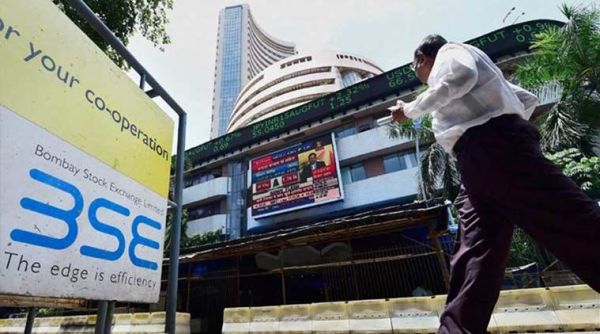
by Editor | May 25, 2021 | Economy, Markets, News
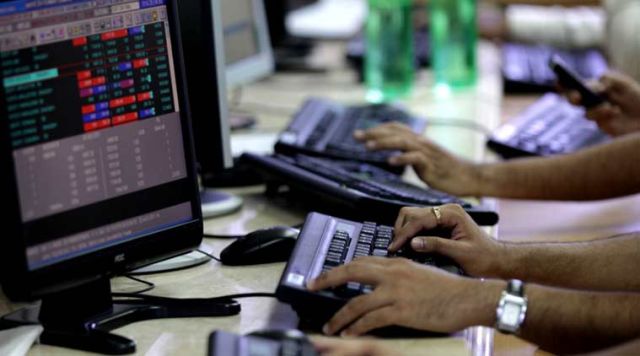 By Rohit Vaid,
By Rohit Vaid,
Mumbai : Fears over the imposition of more trade protectionist measures, along with a parliamentary deadlock may flare up further volatility in the domestic equity market in the coming truncated trade week.
Besides, triggers such as higher crude oil prices, derivatives expiry and the upcoming macro-economic data points are expected to influence investors’ sentiments.
“Markets next week would continue to be volatile guided by global developments on the ongoing trade issues between the US and China as well as the local political developments, especially the outcome of Rajya Sabha polls,” Devendra Nevgi, Founder and Principal Partner, Delta Global Partners, told IANS.
“Oil prices (Brent) have hit $70, adding to the risk aversion in India.”
Last week, economic tensions between the world’s two largest economies escalated after the US imposed tariffs on Chinese products and China announced plans for a retaliatory action.
“Market is expected to continue its volatile trade going forward and investors will continue to keep close eye on further actions by Donald Trump and the reaction of the Chinese government,” said D.K. Aggarwal, Chairman and Managing Director of SMC Investments & Advisors.
“Besides, global macroeconomic data releases, the movement of rupee against the dollar, crude oil price movement, investment by FPIs (foreign portfolio investors) and DIIs (domestic institutional investors) will continue to give direction to the markets.”
In addition, parliamentary proceedings, macro-economic points like Index of Eight Core Industries (ECI) figures, along with the country’s fiscal deficit numbers up to February and its external debt data will be keenly watched by investors.
“The fiscal deficit number for February to be declared on the coming Wednesday (March 28) will be closely watched for slippages,” Nevgi said.
According to Vinod Nair Head of Research at Geojit Financial Services, apart from weak global cues, domestic market “is underperforming” due to premium valuation, profit booking led by LTCG (long-term capital gains) tax and pre-election political uncertainties.
“We can expect this domestic chaos to stabilise by the end of FY18, as redemption pressure will be over. But due to risk of escalation in global trade war and domestic pre-election uncertainties, volatility may continue for some more time,” Nair said.
“The week ahead is truncated with two market holidays and F&O expiry adding volatility.”
Investment-wise, provisional figures from the stock exchanges showed that last week, foreign institutional investors purchased scrip worth Rs 2,524.13 crore and the DIIs invested Rs 211.91 crore in equities.
The National Securities Depository (NSDL) revealed that FPIs invested Rs 2,060.04 crore, or $316.99 million in equities during March 19-23.
On the currency front, the rupee weakened by eight paise to close at 65.01 against the US dollar from its previous week’s close at 64.93.
Technical charts showed a bearish outlook for the National Stock Exchange’s (NSE) Nifty.
“The Nifty remains in downtrend and further downsides are likely early next week once the immediate supports of 9,952 points are broken,” said Deepak Jasani, Head of Retail Research for HDFC Securities.
“Immediate resistance is now at 10,227 points.”
The key Indian equity indices — the BSE Sensex and the NSE Nifty50 — closed last week at 5-month low levels on the back of trade protectionist measures, apart from the ongoing turmoil in the domestic banking system as well as the uncertainty on the political situation in the country.
Consequently, the 30-scrip Sensitive Index (Sensex) of the BSE shed 579.46 points or 1.75 per cent to 32,596.54 points — its lowest closing level since October 23, 2017.
Similarly, the Nifty50 of the NSE edged lower. It ended below the psychologically important 10,000-mark level and closed last week’s trade at 9,998.05 points — down 197.1 points or 1.93 per cent — its lowest closing level since October 11, 2017.
The Indian equity markets will be closed on Thursday and Friday on account of Mahavir Jayanti (March 29) and Good Friday (March 30), respectively.
(Rohit Vaid can be contacted at rohit.v@ians.in)
—IANS

by Editor | May 25, 2021 | Economy, Markets, News
 By Rohit Vaid,
By Rohit Vaid,
Mumbai : Further economic reforms expected from the second-half of the Budget session and volatility in global stock markets will influence the trajectory of the key Indian equity indices next week, opined analysts.
Further, market observers pointed out that crude oil price fluctuations, combined with the stress being faced by the banking sector, direction of foreign fund flows and the rupee’s movement against the US dollar, will also impact investors’ risk-taking appetite.
“Next week, markets would closely track the movement in the banking index, especially the PSU bank stocks, for any recovery — and capital goods stocks,” Devendra Nevgi, Founder and Principal Partner, Delta Global Partners, told IANS.
“The global market sentiment and FPI (Foreign Portfolio Investors) flows would be closely watched, as, in the month of February, FPIs were net sellers to the tune of Rs 18,619 crore.”
“The DII (Domestic Institutional Investors) support remains crucial for markets. (February net purchases of Rs 17,813 crore.)”
According to Vinod Nair, Head of Research, Geojit Financial Services, the long-term outlook for the economy “continues to be strong, while valuation for the market is still high”.
“Prevailing volatility in the market is due to concerns on inflation, rise in 10-year bond yield and US Federal Reserve’s rate hike trajectory,” he said.
Besides global cues, investors are expected to keep a close watch on the upcoming macro-economic data point — the Nikkei India Composite PMI Output Index — and the rupee’s movement against the US dollar.
On the currency front, the rupee weakened by 96 paise to close at 65.17 against the US dollar for the week ended March 1.
“News of BJP doing well in the assembly polls in three key North East states augurs well for political stability. We are in a pre-election year, where every small and large victory will get bigger than usual importance. As a result, we expect the rupee to strengthen towards 65 levels during the first half of the week,” Anindya Banerjee, Deputy Vice President for Currency and Interest Rates with Kotak Securities, told IANS.
“Weakness in the US dollar, post Trump’s announcement on trade tariffs, should add momentum to the long rupee trade. On USD-INR, we are expecting a range of 64.70 to 65.30 levels on spot.”
On technical levels, the underlying short-term trend of the National Stock Exchange’s (NSE) Nifty50 remains bearish.
“Technically, with the Nifty resuming its short-term downtrend after a minor pullback witnessed last week, the underlying trend remains down,” said Deepak Jasani, Head of Retail Research for HDFC Securities.
“Further downsides are likely once the immediate supports of 10,422 points are broken.”
Last week, despite better-than-expected macro-economic growth indicators, the key Indian equity indices closed the week on a flat-to-negative note as global cues and the stress faced by the banking sector, eroded investors’ risk-taking appetite.
However, a minor pullback rally led by healthy GDP growth data for the third quarter of 2017-18 helped pare some losses in the truncated week that ended Thursday, with Holi being celebrated on Friday.
Consequently, on a weekly basis, the barometer 30-scrip Sensitive Index (Sensex) of the Bombay Stock Exchange (BSE) declined by 95.21 points or 0.28 per cent to close at 34,046.94 points.
Similarly, the wider Nifty50 of the NSE closed slightly in the red. It closed at 10,458.35 points — down by just 32.7 points or 0.31 per cent from its previous week’s close.
(Rohit Vaid can be contacted at rohit.v@ians.in)
—IANS
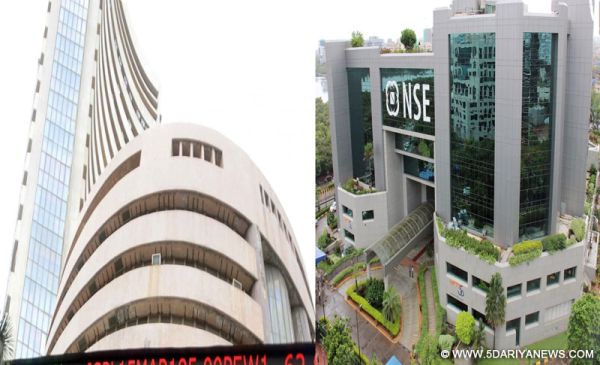
by Editor | May 25, 2021 | Economy, Markets, News
 e
e
By Rohit Vaid,
Mumbai : The ongoing earnings result season, along with macro-economic inflation and trade data points, are expected to influence the Indian equity market next week.
Market observers opined that global crude oil prices and the rupee’s movement against the US dollar will act as other major triggers.
“Markets next week will continue to focus on earnings of corporates such as Zee, Bharti, Adani, Wipro, MindTree, etc. Earning results, so far, have been in line with expectations,” Devendra Nevgi, Founder and Principal Partner, Delta Global Partners, told IANS.
Companies like Hindustan Unilever, Adani Ports & SEZ, Bharti Airtel, ITC, Hindustan Zinc, UltraTech Cement, HDFC Bank, Reliance Industries and Wipro are expected to announce their quarterly results in the coming week.
Besides Q3 results, investors will look out for upcoming macro-economic inflation data points such as the WPI (Wholesale Price Index) and Balance of Trade figures.
Market participants will also give their first reaction to the IIP (Index of Industrial Production) and CPI (Consumer Price Index) figures which were released after the market hours on Friday (Jan 12).
“Over the next week, market will react to the sharp jump in IIP for November to 8.4 per cent and CPI for December to 5.2 per cent. Restocking in the consumer non-durables space and healthy activity in the capital goods sector are responsible for the sharp increase in IIP,” Anindya Banerjee, Deputy Vice President for Currency and Interest Rates with Kotak Securities, told IANS.
In terms of investments, provisional figures from the stock exchanges showed that domestic institutional investors (DIIs) purchased stocks worth Rs 2,383.11 crore during the week, while foreign institutional investors (FIIs) sold company scrips worth Rs 965.16 crore.
Figures from the National Securities Depository (NSDL) revealed that foreign portfolio investors bought equities worth Rs 554.03 crore, or $88.34 million, during January 8-12.
On the currency front, the rupee weakened by 26 paise to close at 63.63 against the US dollar from its last week’s close at 63.37.
“As far as levels are concerned, we look forward to 63.25-30 as the near-term support for USD-INR and 63.90-64 as a major resistance,” Banerjee said.
As per technical readings, Nifty is expected to surge higher and breach new record highs during the upcoming week.
“Technically, with the Nifty surging higher to new record highs, the underlying intermediate uptrend remains intact,” Deepak Jasani, Head – Retail Research, HDFC Securities, told IANS.
“Further upsides are likely once the immediate resistances of 10,690 points are taken out. Weakness could emerge if the supports of 10,490 points are broken.”
Last week, “consistent investments” from domestic institutions propelled the the key equity indices — the Sensex and the Nifty50 — to close at record high levels.
Consequently, the barometer 30-scrip S&P Sensex of the Bombau Stock Exchange surged by 438.54 points or 1.28 per cent to 34,592.39 points.
Similarly, the wider Nifty50 of the National Stock Exchange made healthy gains. It rose 122.4 points or 1.16 per cent to 10,681.25 points.
(Rohit Vaid can be contacted at rohit.v@ians.in)
—IANS
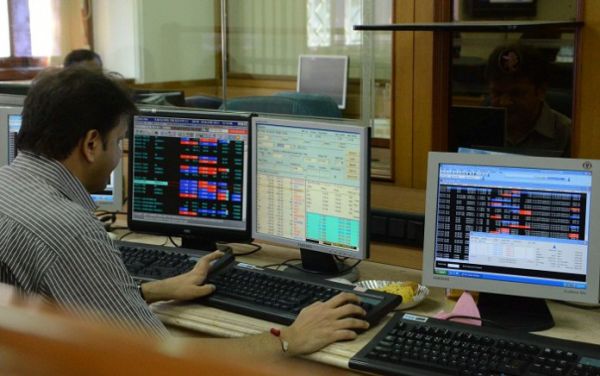
by Editor | May 25, 2021 | Business, Investing
 Mumbai, (IANS) : Positive global cues, along with short covering buoyed the Indian equity markets during the early morning trade session on Tuesday.
Mumbai, (IANS) : Positive global cues, along with short covering buoyed the Indian equity markets during the early morning trade session on Tuesday.
Investors’ risk taking appetite was enhanced following US electoral developments, such as the clean chit given by the US investigators to the Democratic presidential nominee Hillary Clinton.
The US presidential election will be held on Tuesday.
The wider 51-scrip Nifty of the National Stock Exchange (NSE) gained 31.55 points or 0.37 per cent to 8,528.60 points.
The barometer 30-scrip sensitive index (Sensex) of the BSE, which opened at 27,537.26 points, traded at 27,542.41 points (at 9.35 a.m.) — up 83.42 points or 0.30 per cent from the previous close at 27,458.99 points.
The Sensex has so far touched a high of 27,600.71 points and a low of 27,508.43 points during the intra-day trade.
The BSE market breadth was firmly in favour of the bulls — with 1,259 advances and 448 declines.
On Monday, the Indian equity markets closed in the green due to positive global cues.
The barometer index rose by 184.84 points or 0.68 per cent to 27,458.99 points, while the NSE Nifty edged up by 63.30 points or 0.75 per cent to 8,497.05 points.






